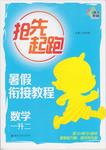题目内容
用方框中所给单词的适当形式填空,使短文通顺正确、连贯(每个单词限用一次)。

This month’s goal for helping to save our planet!
Week1: This week,my family tried to save electricity.We never left the lights _61___ when leaving the rooms.We switched off the TV when __62___was watching it.Mum only used cold water in the washing machine.
Week2: We started recycling this week.We tried to write on ___63__ sides of our paper,not just on one side.We also divided our rubbish into ___64__bags for bottles,cans,paper and food.Plastic bags from the supermarket were ___65___so we can use them again as rubbish bags.
Week3: We stopped taking long baths and had short showers ___66___.We flushed the toilet with __67___ water.When mum and dad made tea or coffee,they used less water in the kettle(水壶).My sister and I didn’t leave the tap running when we brushed our ___68__.
Week4: Mum used to __69___ us to school,but now my sister and I have started riding bikes to school.This week dad and a few of his workmates started to go to work together in one car and share the cost.My fridends and I became volunteers at school.We are taking the __70____step to help make our school more earth-friendly.
on
nobody
both
different
kept
instead
used
teeth
drive
first
【解析】
试题分析:
本文week1一行的含义是这一周我的家人正在努力地节约用电,我们离开房间从来没有使灯开着的,这样的意思才符合句意,on表示开着的,故本句空格处填on。
本句的含义是当没有人看电视的时候,我们就把电视关上,根据句意本句的空格处填没人的单词nobody。
本句的含义是我们尽量的在纸的两面写,而不是在纸的一面写,表示两者都用both,故本句空格处填两者都的单词both。
本句的含义把我们所使用的垃圾放在不同的袋子里,把垃圾分为瓶,罐,食物,纸等类别。故本句的空格处填不同的单词different。
本句的含义是超市的塑料袋我们可以保留,这样我们可以作为垃圾袋再次使用,根据句意本句的空格处填保留的单词keep,本句是被动句,故本句空格处填保留的过去分词kept。
本句的含义是我们不再长时间的淋浴,而是用短时间的淋浴来取代,根据句意本句空格处填代替的单词instead。
本句的含义是我们冲厕所用使用过的废水,根据句意本句空格处填使用过的单词used。
本句的含义是当我和我妹妹在刷牙的时候不再让水龙头的水在流淌着,故本句空格处填牙齿复数的单词teeth。
本题的含义是妈妈以前开车送我们到学校,但现在我们自己骑自行车到学校,根据句意本句空格处填驾驶的单词drive。
本文最后一句的含义为我们努力的成为学校的志愿者,这是使我们的学校和地球更友好和谐所采取的第一步,根据句意本句空格处填第一的单词first。
考点:这是一篇有关如何保护我们星球的说明文。
点评:本文主要谈论了如何保护我们的星球,在节约用电,用水,以及垃圾废物回收,骑车上学等方面谈论了对自然资源的节约,阅读本文时我们应该以节约为中心词,通读全篇,把握文章的主要内容。

 数学奥赛暑假天天练南京大学出版社系列答案
数学奥赛暑假天天练南京大学出版社系列答案 南大教辅抢先起跑暑假衔接教程南京大学出版社系列答案
南大教辅抢先起跑暑假衔接教程南京大学出版社系列答案| 任务型完形填空:用方框中所给单词的适当形式填空,每个单词限用一次,使短文通顺正确连贯,将答案填写在题后的横线上。 | |
Life used to be fun for "teenagers". They used to have money to spend, and free time to while away (消磨). They used to wear teenage clothes, and meet in teenage coffee bars and discos. Some of them still do. But for many young people, life is harder now. 1. are difficult to find. There's not so much money around. Things are 2. , and it's hard to find a place to live in. Teachers say that students work harder than they used to. They are less 3. in politics, and more interested in 4. exams. They know that good exam results may bring them better jobs. Most young people worry more about money than their parents did twenty years ago. They try 5. less and save more. They want to be able to get homes of their own one day. For some, the answer to unemployment (失业) is to leave home and look for jobs in one of Britain's big 6. . Every day hundreds of young people arrive in London from other parts of Britain, looking for jobs. Some find jobs and stay. 7. don't, and go home again, or join the unemployed (失业者) in London. When you read the newspapers and watch the news on television, it's 8. to get the idea that British young people are all unemployed, angry and in trouble. But that's not true. Three quarters of them do more or less what their parents did. They do their best at school, find some kinds of jobs in the end, and get 9. in their early twenties. They get on well with their parents, and enjoy their family life. After all, if they don't, they 10. be British, will they? |
| 任务型完形填空:用方框中所给单词的适当形式填空,每个单词限用一次,使短文通顺正确连贯,将答案填写在题后的横线上。 | |
3._______ music instruments (乐器). Many 4._______ of music have developed. There are so many kinds of music and you may be 5._______ in some of them. Music has different 6._______ for everyone. It is 7._______ by the old and young, men and women. It can make people happy or sad. In our 8._______ world, radios and televisions offer us lots of music, giving us enjoyment, 9._______ in a music lesson or at a concert. Music means different things to different people. Music 10._______ to the whole world. |